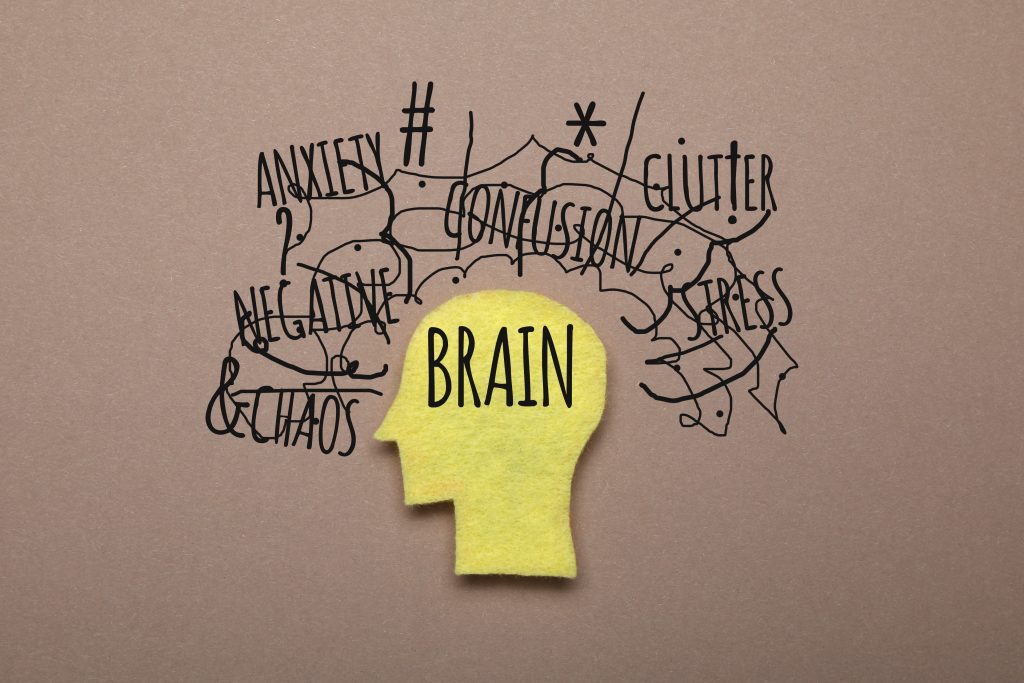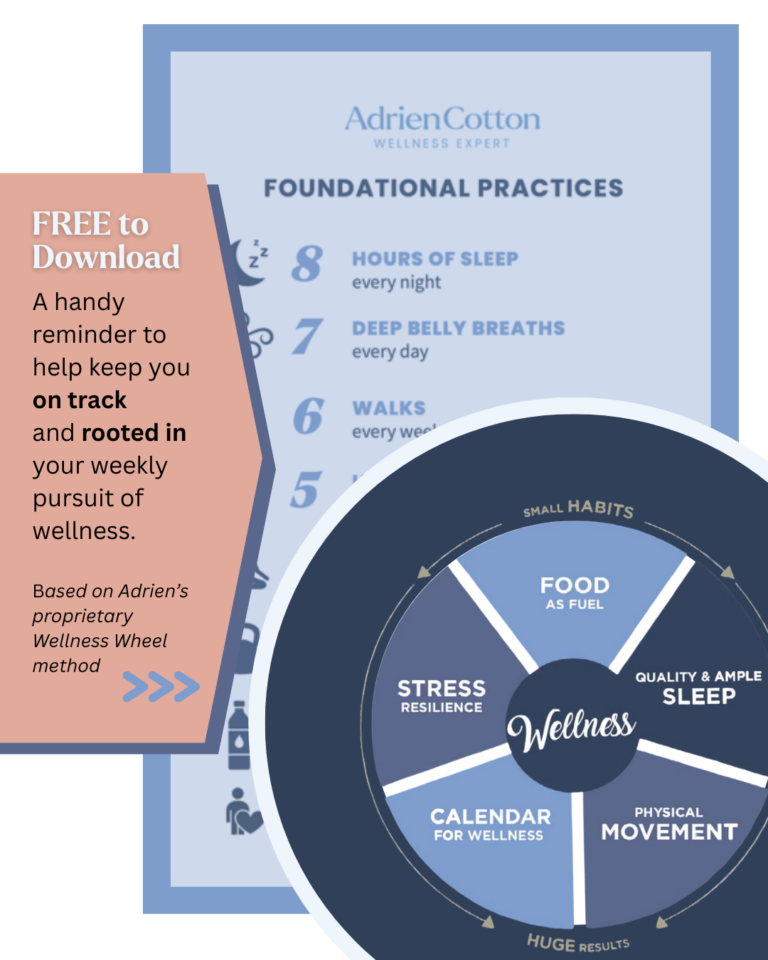Before dedicating my life to elevating midlife wellness for women, I found myself in the thick of perimenopause. During my mid-40s, I would wake up most nights drenched in sweat with my brain racing toward overdrive. The next morning, I would feel exhausted and like no decision was a good decision. I often felt stressed and overwhelmed with brain fog clouding the day ahead of me.
Sound familiar?

While most people associate hot flashes as a symptom of menopause, rarely is brain fog, or problems with focus and attention, on that list. Yet, cognitive dysfunction during menopause, often termed “menofog,” is a common experience for women. While stress and lack of sleep certainly play their part in contributing to menofog, a drop in the hormone estrogen is a contributor too.
Estradiol, the form of estrogen produced during the reproductive years, begins to decline during perimenopause and menopause. Estradiol is a hormone that not only regulates the reproductive system, but also contributes to maintaining the heart, bones, muscles, and brain. Yep, estrogen is powerful stuff.

Research has shown that a reduction in estradiol affects memory function in the brain. The life cycle of brain cells, as well as their connectivity in the memory regions of the brain, can be greatly affected by reduced estrogen levels. A report published by the World Journal of Psychiatry notes a correlation between a disruption in verbal episodic memory, like remembering an event from last week or where you put your car keys, and fluctuating estrogen levels during perimenopause and menopause.
Add the fact that brain glucose levels can also drop during this transitional time, and we’re headed toward a memory meltdown.
There are steps we can take to lessen the effects of brain fog during the menopausal transition:
Treat food as fuel, not the enemy
Perimenopause and menopause are marked with weight gain for many women. In response, many of us view food as the contributor to the added pounds instead of the true culprit: changes in hormone levels. These hormonal changes can also affect a woman’s glucose levels. Both high and low levels of blood sugar are known to cause brain fog and memory issues.
Choosing foods that fuel our bodies is important in maintaining cognitive functioning. And it’s not just what we eat, but when and how we consume our meals that makes a difference. Eating regular meals, three times a day, without distraction is key to optimum fueling. Consistent eating times help steady glucose levels. Additionally, being focused on what we’re eating keeps us on track with mindful food choices (yes, that means saving the social media scrolling for later). We can’t be strong and focused on an empty stomach.
Get sleep
I mention sleep a lot in my programs because it is vital to our mental and physical well-being. Running on empty is not only exhausting but affects our mental state too. I can relate to trying to do it all by taking time away from sleep, yet instead of feeling accomplished, the lack of sleep and exhaustion left me feeling constantly worried and anxious about the future.

Fostering a healthy sleep mindset can be a game-changer. The more I gave myself time to rest properly, the more I felt both physically and mentally able to tackle the day. Sleep helps lead us out of the brain fogginess and gives us clarity to handle the challenges that come our way each day.
Take time to move
Whether it’s a daily walk, a 30-minute cardio session, some light weight-training (which is fantastic not just for your muscles, but for your bones too), or dancing to your favorite Beibs tune (shhh, don’t tell anyone), pausing to treat ourselves to invigorating movement will do wonders for our mental health. We don’t have to dedicate hours to daily exercise, which can be counterproductive and produce stress hormones that will make managing our mental focus even more difficult.

Research has shown that exercise is great at reducing stress and also increasing mental alertness. Thirty minutes is all we need to enjoy its benefits. If thirty minutes isn’t available, try three 10-minute sessions throughout the day to help keep the brain fog at bay. It’s not the minutes, but the consistency that counts.
Utilize your calendar
I’ve had a love/hate relationship with my calendar in the past. I used to overschedule myself in my quest to be everything to everyone. Some days I would avoid looking at my calendar to prevent the flood of anxiety at seeing my never-ending to-do list. Instead of using my calendar to fulfill my needs, I was using it to meet the needs of everyone else. That’s not to say that doing for others is a bad thing, in fact it’s a wonderful thing and often fills us with joy and a sense of purpose. However, there is a limit to how much we can give, especially if it’s at our own expense.
Use a calendar to keep track of what needs to be done each day. Writing down the to-dos and appointments will help keep track of the important stuff and ease the brain fog. It is equally important to foster our happiness too. Scheduling time for our own needs will keep our tanks full while also filling those of others. Maintaining a manageable schedule will limit the overwhelm and provide more room for focus and clarity.
While the hormonal changes that come with menopause are inevitable, the way we adapt to this new normal is ours to embrace. With small changes, you can not only enjoy midlife but thrive in it. Join me in my Small Group Concierge Wellness program to learn how to create a more rewarding midlife experience.



